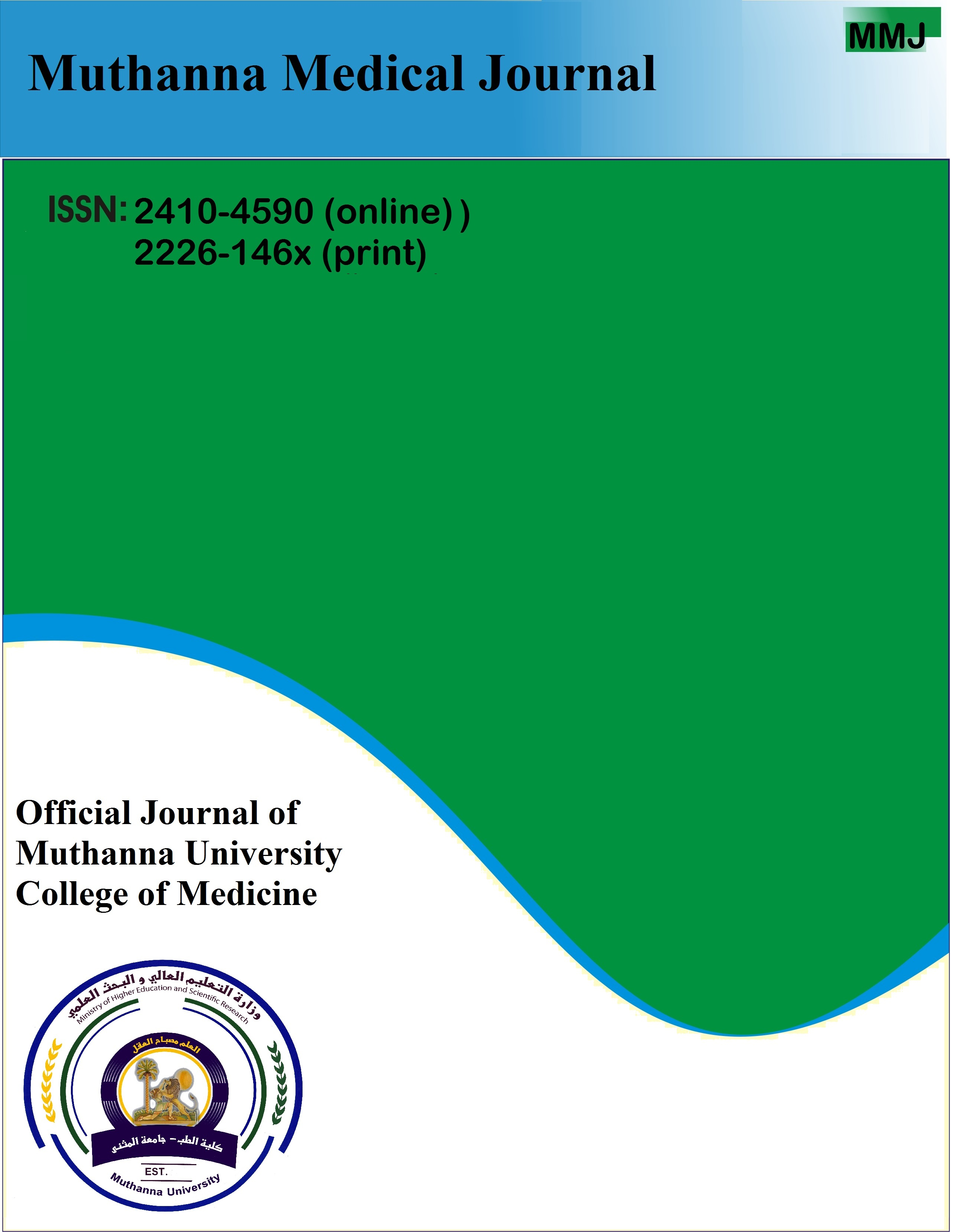Muthanna Medical Journal
Baraka Safaa’ Mustafa 1, Jalil Ibrahim Saleh 2
Copyright © 2023 Baraka Safaa, et al. This is article distributed under the terms of the Creative Commons Attribution License http://creativecommons.org/licenses/by/4.0), which permits unrestricted use, distribution, and reproduction in any medium, provided the original work is properly cited
Abstract
Immunization is an effective means for preventing illness and reducing the burden of various infectious diseases. Incomplete or partial immunization poses a serious threat to the health of children in many developing countries, including Iraq. The objectives are to investigate the prevalence of missed opportunities for immunization (MOI) and its associated factors among children aged below two years old attending primary health care centers (PHCCs) in Baghdad/Al-Karkh. A cross-sectional study involving 500 children’s companions attending PHCCs in Baghdad/Al-Karkh from the 1st of September 2022 to the 1st of July 2023. The respondents were enrolled using a systematic random sample technique and interviewed with a self-administered questionnaire. Vaccines studied in this study were within the National Programmed on immunization schedule including BCG, Hepatitis B birth dose, OPV, PCV13, Rota, Pentavalent (HBV, Hib, and DPT), IPV, Measles and MMR vaccines. Data analysis was done using Statistical Package for Social Science Version 22. Inferential statistics of the Chi-square test were used to test an association between various socio-demographic variables. The level of significance was <0.05. The results revealed that the overall prevalence of MOI was 31.6%. The commonest vaccines missed were those given at 18th –months of age (MMR2 booster, OPV, and DPT booster) at a rate of 46.9%. Non-availability or lack of vaccine(s), child sickness, visit of client on the wrong day of vaccination, and vaccine not opened for one child, were the major reasons responsible for MOI among children attending PHCCs in Baghdad/Al-Karkh. In conclusion, nearly one of every three children aged below two years old in Baghdad /Al-Karkh was incompletely vaccinated; non-availability of vaccine(s) was the main cause of incomplete immunization.
Keywords: Prevalence, Missed opportunities of immunization, Baghdad